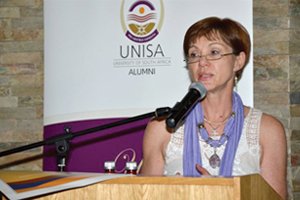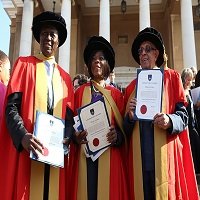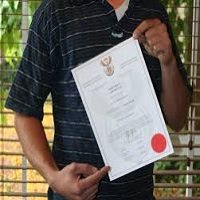Student FAQ’s
Student FAQ’s In South Africa
Student FAQs in South Africa: Your Ultimate Guide
For students navigating the vibrant landscape of South Africa’s higher education system, questions often arise about applications, student life, tuition fees, scholarships, and post-study opportunities. South Africa’s universities are renowned for their cultural diversity, top-notch programs, and breathtaking campus settings. To help ease your transition, here’s a comprehensive guide addressing the most frequently asked questions about studying in South Africa.
1. What Are the Top Universities in South Africa?
South Africa boasts some of the best universities in Africa, known for academic excellence and vibrant campus life. The top universities include:
- University of Cape Town (UCT): Renowned for its stunning campus and high research output, UCT consistently ranks as the top university in Africa.
- University of the Witwatersrand (Wits): Located in Johannesburg, Wits is known for strong programs in engineering, business, and the humanities.
- Stellenbosch University: This picturesque university offers excellent programs in business, engineering, and agricultural sciences.
- University of Pretoria (UP): Known for programs in law, business, veterinary science, and humanities.
- University of KwaZulu-Natal (UKZN): A leader in health sciences and engineering, with campuses across the province of KwaZulu-Natal.

2. What Are the Admission Requirements for South African Universities?
Admission requirements vary depending on the university and program. However, common requirements for undergraduate programs typically include:
- National Senior Certificate (NSC): South African students must meet the NSC with a university endorsement.
- International Students: Foreign students often need a certificate equivalent to the South African NSC. Certain programs may require specific subjects.
- Standardized Tests: Some universities require additional tests, like the National Benchmark Test (NBT) for entry into competitive programs.
- Language Proficiency: For non-native English speakers, proof of English proficiency, such as TOEFL or IELTS scores, may be required.
For postgraduate studies, additional criteria usually include:
- Bachelor’s Degree: An undergraduate degree relevant to the chosen field of study.
- Academic Transcripts: Previous academic records showing a strong performance.
- Research Proposal: For research-focused programs, a proposal outlining the intended research topic is often required.
- Work Experience: Some master’s programs, such as MBAs, may require professional work experience.
3. How Do I Apply to South African Universities?
Applications can generally be completed online via the university’s website, but the process typically includes these steps:
- Research Programs and Requirements: Each program has unique admission criteria, so it’s crucial to review them beforehand.
- Register Online: Create a profile on the university’s admissions portal.
- Complete the Application Form: Fill out all required details accurately.
- Submit Documents: This includes academic transcripts, ID or passport copies, a statement of purpose, letters of recommendation, and standardized test scores if required.
- Pay the Application Fee: Most universities charge a non-refundable application fee.
- Check Deadlines: Deadlines vary, so make sure to apply well before the cutoff date.
4. What Is the Cost of Studying in South Africa?
The cost of education in South Africa is relatively affordable compared to other study destinations. Costs vary by university and program:
- Tuition Fees: These can range from ZAR 30,000 to ZAR 70,000 per year for undergraduate programs, while postgraduate programs may cost between ZAR 25,000 and ZAR 80,000, depending on the program.
- Accommodation: On-campus accommodation costs around ZAR 20,000–ZAR 50,000 per year. Renting an apartment off-campus may be more expensive, particularly in cities like Cape Town and Johannesburg.
- Living Expenses: On average, monthly expenses, including food, transport, and leisure activities, range from ZAR 6,000 to ZAR 10,000.
5. Are There Scholarships Available for International Students?
Yes, there are a variety of scholarships and funding options for international students, though they may be competitive. Popular scholarships include:
- National Research Foundation (NRF): Provides scholarships for postgraduate studies, particularly in fields of research that align with South Africa’s national interests.
- University-Specific Scholarships: Many universities offer scholarships based on academic merit, financial need, or both.
- Organization-Sponsored Scholarships: Organizations like the Mastercard Foundation offer scholarships to African students.
- External Scholarships: Some international programs, like the Commonwealth Scholarship, are available for students from specific countries.
Most scholarships require students to maintain high academic standards, and some may come with work obligations after graduation.
6. Do I Need a Visa to Study in South Africa?
Yes, all international students need a study visa to study in South Africa. Here’s a quick guide on obtaining one:
- Letter of Admission: Obtain an official letter from a South African university confirming your acceptance.
- Financial Proof: Provide proof that you can support yourself financially during your studies.
- Health Insurance: Secure South African-based medical insurance.
- Police Clearance: A police clearance certificate from your home country may be required.
- Visa Application Form: Submit the application form, along with a passport that’s valid for at least 30 days beyond the end of your studies.
The application process can take several weeks, so apply for your visa well in advance.

7. What Is Student Life Like in South Africa?
Student life in South Africa is diverse and enriching, with plenty of opportunities for socializing, recreation, and personal growth:
- Campus Culture: South African universities offer a vibrant campus life with clubs, societies, and sports activities that encourage students to engage and socialize.
- Diversity: You’ll meet students from various cultural backgrounds, creating an inclusive and multicultural environment.
- Nightlife and Social Scene: Major cities like Cape Town, Johannesburg, and Durban are known for their lively nightlife, including student-friendly pubs, cafes, and music events.
- Adventure and Travel: South Africa’s breathtaking landscapes, such as Table Mountain and Kruger National Park, offer ample outdoor activities, from hiking to wildlife safaris.
8. Can I Work While Studying?
Yes, international students in South Africa are permitted to work part-time under certain conditions:
- Working Hours: Students can work up to 20 hours per week during the academic year and full-time during university holidays.
- Internship Opportunities: Many South African universities facilitate internships and part-time work opportunities to enhance professional experience.
- Relevant Work: Some study visas may limit students to work only within their field of study, so check the specific terms of your visa.
Working while studying can help cover living expenses, but keep in mind that part-time jobs may not fully offset tuition and other costs.
9. What Are the Post-Graduation Opportunities in South Africa?
South Africa has growing industries, particularly in fields like technology, finance, and health sciences, making it an attractive place for graduates. Here are a few options for students post-graduation:
- Stay and Work: After graduation, international students can apply for a Critical Skills Work Visa if their field aligns with South Africa’s critical skills list.
- Further Studies: Graduates may continue with postgraduate studies, such as a master’s or PhD, which can extend their stay.
- Return Home: Many students leverage their South African degrees to pursue careers in their home countries or other international destinations.
Networking during your studies, such as through internships and professional events, can increase your chances of landing a job in South Africa after graduation.
10. Is South Africa Safe for International Students?
Safety is a valid concern for students considering South Africa, but many students study and live safely by taking common-sense precautions:
- Campus Security: Most universities have campus security measures in place, including gated entry, security personnel, and emergency services.
- Awareness: Stay informed about your surroundings, especially when traveling off-campus or in unfamiliar areas.
- Public Transport: Stick to reputable forms of transport, like university shuttles, registered taxis, and services like Uber, especially at night.
Like in any country, safety is enhanced by awareness and avoiding high-risk areas, particularly at night.
11. How Can I Adapt to South African Culture?
South Africa is known as the “Rainbow Nation” for its cultural diversity, and adapting involves an open mind and respect for different customs:
- Learn Local Languages: Although English is widely spoken, learning a few phrases in Zulu, Xhosa, or Afrikaans can help you connect with locals.
- Respect Cultural Differences: South Africa’s multicultural society means you’ll encounter various customs, beliefs, and traditions, so always be respectful and open-minded.
- Engage with the Community: Joining campus clubs and community service activities helps build friendships and enrich your cultural experience.
12. What’s the Weather Like in South Africa?
South Africa has a generally mild climate, with seasonal variations:
- Summer: November to March, with warm weather ideal for outdoor activities. Coastal cities are warm but breezy, while inland areas can be hot.
- Winter: May to August, with cooler temperatures. Cape Town and the Western Cape get rain in winter, while Johannesburg and the Highveld remain dry.
South Africa’s weather is mostly pleasant, making it easy for students to explore outdoor activities throughout the year.
13. How Do I Stay Connected with Family Back Home?
Staying in touch with family and friends is easy with modern communication tools:
- SIM Cards and Data Plans: South Africa has several mobile providers offering affordable data plans.
- Wi-Fi Access: Most campuses have Wi-Fi, and it’s available in most accommodations and public places.
- Messaging Apps: Apps like WhatsApp, Skype, and Zoom are popular choices for keeping in touch with loved ones.
Conclusion
Studying in South Africa is an enriching journey filled with academic, social, and cultural opportunities. By understanding the practical aspects of studying here—from applications and visa requirements to costs and student life—you’ll be better equipped to make the most of your experience.
South Africa offers an unmatched experience that combines quality education with a unique cultural setting, all while opening doors to personal and professional growth. With the answers to these FAQs, you’re ready to embark on this exciting chapter with confidence. Enjoy your journey in South Africa!
| Levels | FAQ's In South Africa | Click Here and Clarify |
|---|---|---|
 | School FAQ's In SA | Question & Answers |
 | Matric FAQ's In SA | Question & Answers |
 | College / University FAQ's In SA | Question & Answers |
 | NSFAS FAQ's In SA | Question & Answers |
 | Diploma / Degree FAQ's In SA | Question & Answers |
 | SASSA FAQ's In SA | Question & Answers |
 | UNISA FAQ's In SA | Question & Answers |
 | SRD Grants FAQ's In SA | Question & Answers |
 | Foreigners FAQ's In SA | Question & Answers |
 | General FAQ's In SA | Question & Answers |
 | All Certificates FAQ's In SA | Question & Answers |
 | Trade Test In SA | Question & Answers |
